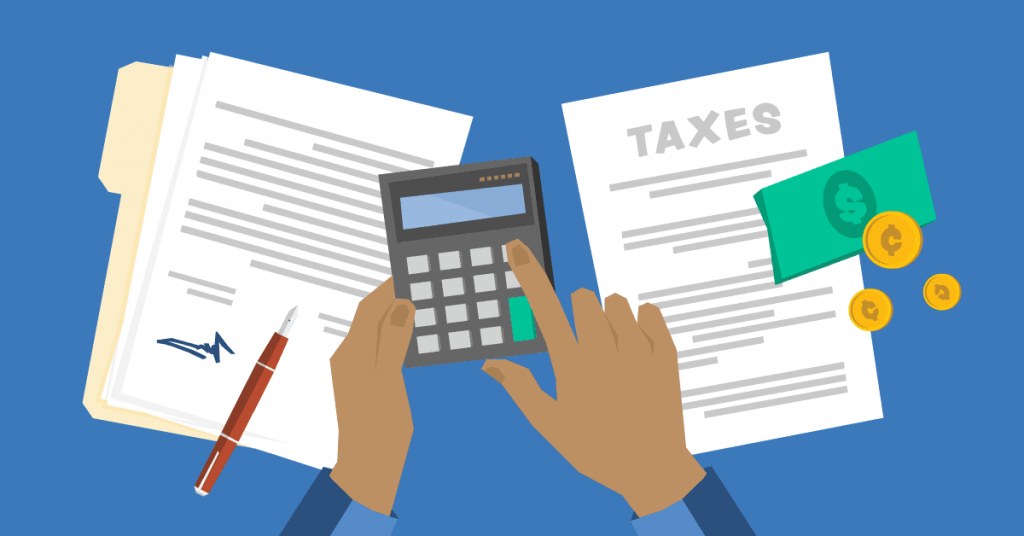Why Underpayment Penalties Are So High This Year

Tax season isn’t fun for anyone, but if you’re a small business owner, taxes can stress you out year-round. Anyone who doesn’t pay enough in estimated quarterly taxes faces underpayment penalties. Underpayment penalties are based on interest rates, and interest rates have gone up. Let’s take a look at how underpayment penalties work.
What are Underpayment Penalties?
First, let’s briefly discuss quarterly payments: When you’re self-employed, you’re responsible for withholding your own taxes (when you work for an employer, they withhold those taxes for you). And if you expect your business to owe at least $1,000 in taxes (or $500 for corporations), you also have to make quarterly payments every three months. Individuals, sole proprietors, partners, and S-corp shareholders can use IRS Form 1040-ES to estimate their quarterly payments.
But business conditions can change abruptly, and the payments you calculated in January might no longer be accurate by the end of the year. This can happen if, for instance, you start bringing in more customers than you expected and revenue goes up accordingly.
If that happens and your payments fall too short, the IRS can start assessing penalties. And for the first and second quarter of 2024, those penalties come with an 8% annual interest rate that compounds daily. That’s a big increase from the first quarter of 2022, when the underpayment penalty rate was only 3%.
To set underpayment interest formulas, the IRS uses the federal short-term interest rate plus 3 percentage points. A variety of factors, including inflation and supply and demand, affect how the government sets interest rates. For both the first and second quarters of 2024, that short-term interest rate is 5%, and 5 +3 equals 8.
Note that estimated payment underpayment penalties are different from failing to file or filing and failing to pay the proper amount by the due date. IRS sets separate interest rates for those penalties.
How to Avoid Underpayment Penalties
The IRS won’t automatically start charging interest if you’re a few dollars off on your estimated payments. If, after subtracting withholdings and refundable tax credits, you pay at least 90% of what you owe for the current year, the IRS won’t levy penalties. You also won’t be penalized if you paid 100% of the tax you owed the previous year.
For example: This year, you estimated your business would owe the IRS $9,100 in taxes. However, it turns out you owe the IRS $10,000. Since you’ve already paid 91% of the owed amount, you shouldn’t be penalized.
Whenever possible, it’s better to overpay your estimated taxes rather than underpay them. If you give the IRS more than you owe in estimated taxes, they’ll pay you back with interest. Currently, the overpayment rate is 8% for non-corporations and 7% for corporations.
If you don’t qualify for either of the above exemptions, you may still be able to apply for a penalty waiver. To get your penalty removed or reduced, you’ll have to show reasonable cause. Per the IRS, “fire, natural disasters or civil disturbances” are among the valid reasons for penalty relief. The IRS Penalty Relief for Reasonable Cause page has more information on who may qualify for relief and how to apply.
You can also apply for a tax extension if you want, but that won’t solve your estimated tax problem. That’s because an extension gives you six more months to file your annual tax return, not to pay your estimated taxes. It may sound confusing, but it’s how the IRS works. You’ll still need to pay estimated taxes by April 15 if you want to avoid penalties.
Finding Business Compliance Help
To avoid paying penalties, hire a tax professional to help you out. Errors are more likely when you go it alone.
At Northwest, we don’t do taxes, but we can help your business remain compliant in other ways. Most states require businesses to file an annual report. If you’re too worn out from figuring out your taxes, hire us to file your annual report for you.



